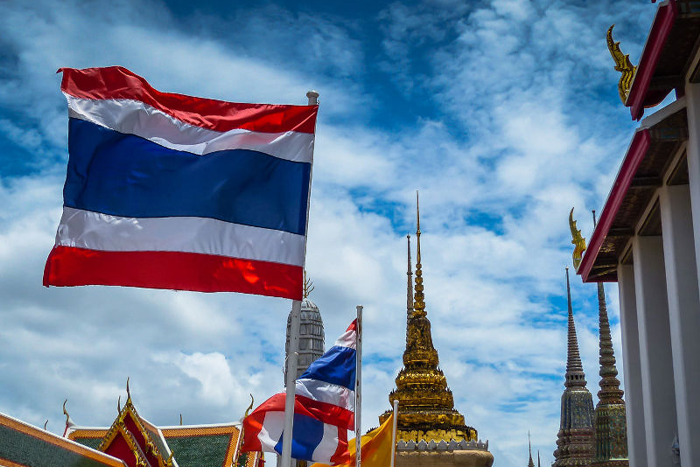August 2019|
Investment interest is picking up among many investors in Asia, and a number of them have asked for our views. Most recently, we hosted Dr Sean Turnell, Special Economic Advisor to the State Counsellor during a trip to Singapore in late July. He shared his insights on a wide range of topics, including Myanmar’s evolving relationships with the region’s great powers, its improving economic prospects and the challenging question of who might succeed Aung San Suu Kyi. Please allow me to share the following points with you on a confidential basis, as our member and friend. Kindly note that these are based on Dr Turnell’s comments and not on our research:
- The shifting US-Myanmar relationship: Recent sanctions imposed by the USA on Senior General Min Aung Hlaing and other generals suggest punitive attitudes. However, their targeted nature and narrow scope reflect a more calculated approach. There has developed a better understanding of how pervasive Chinese influence has become in Myanmar. This has motivated US policymakers to consider more nuanced and constructive means of engaging with the country. One possible compromise will be for the US to grant Myanmar a waiver on its designation as a Tier 3 Country on the US State Department’s Trafficking in Persons Report. This designation restricted multilateral finance institutions to which the US was a party from channelling much-needed financing into Myanmar.
- China changes tack on Myitsone: The Myitsone dam project was suspended under the Thein Sein administration in 2011 after it became symbolic of the negative social and environmental effects of Chinese megaprojects. In an attempt to restart development and rehabilitate its image, Chinese government has now repackaged the Myitsone dam as the solution to Myanmar’s energy issues. Instead of initial agreements which would have only allowed the Myanmar government 10 percent of the energy generated by the dam cost-free with an option to purchase more, China is now offering more of the generated power as well as a suite of energy connectivity projects to link rural areas to the national grid.
- The MSDP moves forward: The Myanmar Sustainable Development Plan (MSDP), which is the framework governing inter-ministerial and cross-sectoral development in Myanmar, is receiving support and having a positive impact. Aung San Suu Kyi and her National Economic Coordination Committee view now as the time to push for sustained economic reform, and perceive the MSDP as the vehicle by which to bring about that change. Organisations such as Dr Sean Turnell’s Myanmar Development Institute are doing cost-benefit analyses on infrastructure projects. The data they gather will be used within Myanmar’s new Project Bank, which will collect important information about priority infrastructure projects and make it available to potential investors. This database is due to become accessible online very soon.
- NLD willing to undertake painful reforms: General elections in 2020 draw nearer, and electioneering has effectively begun. However, Dr Turnell says that Aung San Suu Kyi and the NLD government are still willing to undertake painful reforms if they make sense and are deemed necessary, despite their proximity to elections. A recent example of this is the substantial rise in electricity tariffs, which affected both residential and commercial consumers. While unpopular, this move has been hailed by observers as a necessary move to improve the profitability of the energy sector and encourage investment.
- Constitutional Reform: The NLD is also moving forward on the process of constitutional reform, which has consistently been a part of their manifesto since before their election. This process notably affects issues such as the Myanmar army’s reserved seats in parliament, and Article 59(f) of Myanmar’s constitution, which forbids Myanmar citizens with immediate family members holding foreign citizenship from contesting the presidency.
- NLD succession planning: The NLD’s aging senior leadership – and Aung San Suu Kyi herself – recognises that it must begin paving the way for succession. Aung San Suu Kyi has personally intimated that she plans to step down after major reforms are undertaken, possibly as early as the middle of the NLD’s next term. Escalating efforts to contest Article 59(f) are related to this broader goal, as a number of potential successors are directly affected, by nature of having family overseas. Notable potential successors to Aung San Suu Kyi’s role as leader of the NLD include the Chief Minister of Mandalay, Dr Zaw Myint Maung, and the current President of the Union, U Win Myint. An additional candidate is Yangon Chief Minister U Phyo Min Thein, who is impressive but controversial.
I hope this note of the main points made by Dr Turnell is of interest to you. I would be happy to hear your views on a matter that concerns many of us.
![[Premium] Chairman’s Note (03/2019) – Geopolitical and Economic Changes in Myanmar](https://siiaonline.org/wp-content/uploads/2019/08/pexels-photo-2643896.jpeg)



